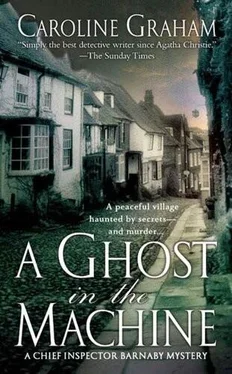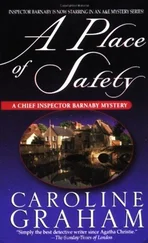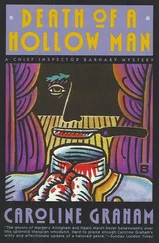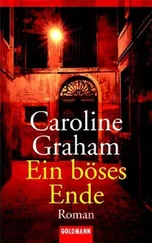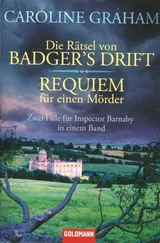“Of course. But leave a card, if you would.”
Barnaby watched the solicitor’s Mercedes negotiate the drive and the small but select gathering of neighbours just beyond the boundary wall. He thought human nature didn’t vary much. Whatever the locale – run-down sink estate, neat suburban terrace or gated enclosure of the super-rich, curiosity as to the business of one’s neighbours seemed endemic.
“See what you can find out from that lot,” said Barnaby. “I’ll look over the house.”
He started at the far end in the larger of the four bedrooms. Men’s clothes were strewn everywhere. Some on the bed, some on the floor, over an armchair. An empty suitcase lay by the dressing table with its lid open. Some drawers had been tipped upside down.
Barnaby tried to open the sliding wardrobes running the length of the room. He had just discovered the electronic button when he heard Troy running through the hall. Racing up the stairs.
“It’s Latham, sir.” Troy stopped on the threshold staring at the mess. “He’s gone.”
“Tell me.”
“Hour, hour and a half ago. Left in a black cab carrying a large holdall. Cab was advertising Britannia Building Society.”
“Right. Get a search call out. Railways, air and seaports. Full description. And get a trace on the taxi.”
Troy seized the phone. Barnaby abandoned his investigation into the wardrobe and set about a more systematic search for Latham’s passport. He started in the library. He knew it was the library because there were red and gold book spines glued to all the shelves. There was also a framed picture of Shakespeare, quill poised, gazing gloomily at an astrolabe. But he had hardly started on the Chippendale desk before Troy was calling out again. Tetchily the chief inspector returned to the bedroom.
“For heaven’s sake, man. Can’t you do a simple—” Then took in Troy’s expression. “What is it? What’s happened?”
“I think you should hear this direct, sir,” said Sergeant Troy, and passed over the telephone.
The offices of Brinkley and Latham were almost deserted. The receptionist was still there, her eyes grossly red and swollen with weeping. A wastepaper basket at her feet full of sodden tissues. When Barnaby and Troy arrived she began to speak, then started to cry again. They made their way through to the main office.
Leo Fortune sat in his cubbyhole staring blankly into space. His desk was cluttered with papers and notes and letters as if, only moments before, he had been lively and busily engaged. There was also a cup of tea, stone-cold with a congealing skin.
When Barnaby said, “Mr. Fortune?” he brought his head up with great difficulty, as if it were a lump of rock. He looked years older than when they had seen him last, his mouth a miserable jagged line.
“This is a bad business, sir.”
“Have you found her?”
“Found…?”
“The Lawson girl.” His voice was cracking all over the place. “Have you arrested her?”
“I need to clarify certain things. The message I got—”
“What’s to clarify? You know what’s happened. You know who’s responsible.”
“I still need to—”
“Haven’t you done anything?”
“Calm down, sir,” suggested Sergeant Troy.
“Calm down?” He stared at them both in turn, his face such a mask of absolute incredulity it verged upon the tragic. Which made it, to Troy’s mind, also comic. He turned away, fumbling for his notebook.
Barnaby sensed the man struggling not to cry. He said quietly, “If we could just take some details, Mr. Fortune…?” Then sat himself squarely in the comfortable chair facing what used to be Dennis Brinkley’s desk. His stolid, phlegmatic presence and the silence that gradually took over the room eased Leo Fortune back into some sort of composure.
“Money has been stolen from nearly all of the accounts held here. Thousands of pounds. Hundreds of thousands.”
“But you’re insured?”
“Of course, we have to be. But this will still finish us. When you’re dealing with other people’s money, once trust has gone you’ve had it. God knows what Mrs. Latham will say.”
Barnaby thought this was perhaps not the time to pass on the news that Gilda was in intensive care and not expected to last the day.
“Have you any way of tracing the money?”
“It’ll be out of the country by now. Some offshore slipperiness. Ghost accounts, more than likely.”
“Ghost?” Barnaby looked up sharply. “How does that work?”
“It’s an old scam. You find a child’s grave, the child being the same sex as yourself and, had it lived, roughly the same age. Apply for a copy of its birth certificate. Using this and an up-to-date photograph, apply for a passport. You can then open an account and start putting money in. And the owner of this account can never be traced because they don’t exist. Hence, ghost.”
“Surely it’s not as simple as that.”
“If it was,” decided Sergeant Troy, “everybody’d be doing it.”
“There’s quite a risk. Checking procedures have been tightened up a lot, especially when presented documents are copies. And you can be in serious trouble just for trying it on.”
Barnaby became briefly distracted then by the phone in reception. It had been ringing quite often since they arrived. He wondered if such frequency was the normal traffic of the day or whether the news of the disaster was already leaking out. With a dozen or so distressed staff on the loose it would hardly be a surprise.
“Are you going to close the office, Mr. Fortune?”
“I can’t decide. If I do it’s going to look as if I’ve scarpered—like one of those dodgy types you see on Watch-dog. And if I don’t, when this really gets out we’ll be practically lynched.”
“Aren’t you going to tell people yourself?” asked Sergeant Troy.
“Of course.” He waved a sheet of foolscap at them. “It’s what I’ve been working on all day. Trying to warn clients that something untoward has happened without actually telling them how bad things actually are.”
“A fine line,” agreed Barnaby.
“So you see why I jumped on you about getting hold of the Lawson girl. Every minute counts.”
“We don’t think Polly Lawson is responsible for this, sir.”
“Not…? But she must be. I mean – we know she did it. You said yourself—”
“We believe these thefts to be something quite separate and unrelated to the earlier incident.”
“How can that be?” Leo looked really sick. Terrible though things were, he had thought at least the police had a name. A point of entry to start searching for the money. “I don’t understand.”
“Do you remember when we talked here a couple of days ago? When Andrew Latham joined us and became extremely disturbed.”
“Of course.”
“And at what point in our conversation it happened?”
“You were talking about the fishmonger. How he’d identified the person Dennis saw breaking in here as Polly Lawson.”
“Why do you think that brought about such an extreme reaction?”
“How should I know?” Fortune put his elbows on the desk, covered his eyes with his hands and groaned. “I don’t know anything any more. I don’t even know what day it is.” Then he looked up sharply. “But I do know I haven’t got time to play stupid games. So get on with what you want to say in a straightforward manner. Or just go.”
Latham was found before the day was out. The photograph helped. A happy smiling one of him and his wife taken years earlier. Gilda neatly excised, the police had it circulated within the hour. The lunchtime edition of the Evening Standard featured it on the front page. The black cab too had been quickly traced. Its driver had taken Latham to South Ruislip; the nearest Tube station to Bunting St. Clare that connected with the main line.
Читать дальше
